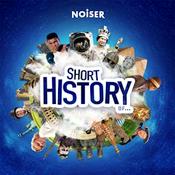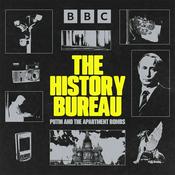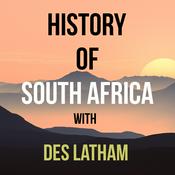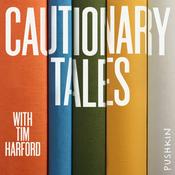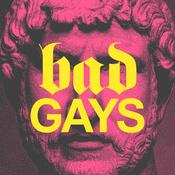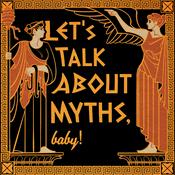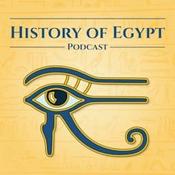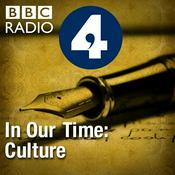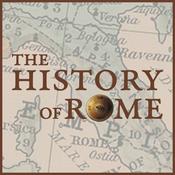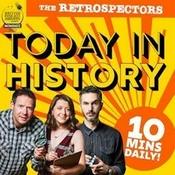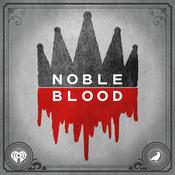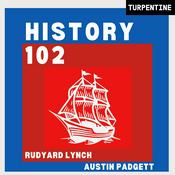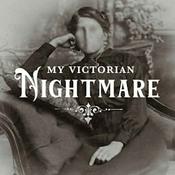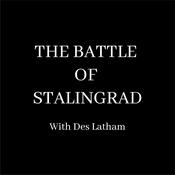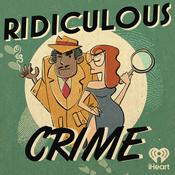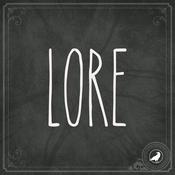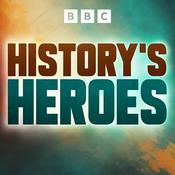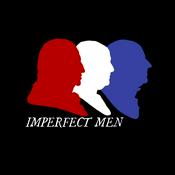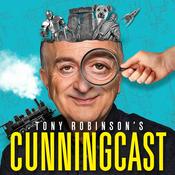13 episodes
12 - Why White Nationalists Love to use Ancient Greece for Hate w/ Dr. Curtis Dozier
2026/1/06 | 1h 8 mins.The White Pedestal: How White Nationalists Use Ancient Greece and Rome to Justify Hate by Curtis Dozier is a powerful exploration of how extremist movements weaponize the classical world. Dozier shows how white nationalist thinkers selectively reinterpret Plato, Sparta, Roman history, and the mythology of “Western civilization” to legitimize violence, exclusion, and racial hierarchy.
Curtis Dozier is Associate Professor of Greek and Roman Studies at Vassar College in Poughkeepsie, New York. He is the author of The White Pedestal: How White Nationalists Use Ancient Greece and Rome to Justify Hate and the director of the website Pharos: Doing Justice to the Classics (doingjusticetotheclassics.org) where he documents examples of appropriations of Greco-Roman antiquity by hate-groups.
Purchase The White Pedestal
https://yalebooks.yale.edu/book/9780300272734/the-white-pedestal/
https://www.amazon.com/dp/0300272731
https://www.barnesandnoble.com/w/the-white-pedestal-curtis-dozier/1147628406
Get full access to Hearth of Hellenism at angelonasios.substack.com/subscribe11 - The Hieroglyphica - Hellenism between Horapollon and Today w/ Dr. Sasha Chaitow
2025/7/19 | 1h 45 mins.Hello listeners, today I have a fantastic interview with Dr. Sasha Chaitow from the amazing Thyrathen substack.
Sasha Chaitow, PhD, is a British-Greek scholar of the history of Western Esotericism with a background in Literature and Communication Studies. Her doctoral thesis (University of Essex, 2014) focused on the French visionary author Joséphin Péladan in relation to Symbolist art and literature in the French Occult Revival (Theion Publishing, 2022), and she has published her MA thesis (University of Exeter, 2008) as a monograph on the Renaissance alchemist Michael Maier and the initiatory content of his 1618 emblem book, Atalanta Fugiens (2020). She has published several peer reviewed articles on related topics, and has also led a parallel career as a medical editor for Elsevier.
A native speaker of Greek, Sasha has worked as an academic translator since 1999, in the Greek press industry as a columnist and reporter, and has published a monograph and several chapters in a Greek university textbook.
Her current research involves folk magical practices in Modern Greece and the history of their transmission, the entanglements of Greek Orthodox theology in relation to Hermetism and Neoplatonic theurgy, and the theology and symbolism of Orthodox icons.
She has taught extensively on the academic study of Western Esotericism, topics in Greek myth and culture, and their reception in Anglophone academic studies. She is also a visual artist and a trained iconographer and has exhibited internationally in 14 solo and several group exhibitions.
The Hieroglyphica is a captivating late antique gem that embodies the twilight of Mediterranean paganism and hieratic philosophy. Frustratingly elusive, this extraordinary text offers a thrilling glimpse into a struggle to safeguard knowledge amid clashing worldviews and the fervent religiocultural passions of its time. Echoing the harmonising tendency of late Neoplatonism, its entangled strands of Greek and Egyptian thought and language do not vie for supremacy, but merge in a battle for interpretation, reinvention, and survival. The journey of the Hieroglyphica is one of transmission and reception: we know more about this than about its creator, provenance, or intent. Its rediscovery and reinterpretation in the Renaissance renders it a touchstone for the development of Renaissance emblematics and alchemical iconography. However, until recently, its legacy was muddled by errors in dating, authorship, and interpretation, and its significance was diminished by biased commentary. The scholarship itself demands a bold reckoning, entangled as it is in ethnocentric and colonialist lenses that still cloud this artifact’s true significance. This new English translation directly from the original Greek opens a door for both curious readers and scholars alike, balancing rich context with a sharp, reliable rendering—sidestepping the pitfalls of past efforts. In this full length scholarly study, Sasha Chaitow has unearthed three groundbreaking insights that reshape our grasp of the Hieroglyphica: Compelling evidence points to its roots in oral tradition, likely penned by a student of Horapollon; a vivid blend of Alexandrian syncretism, Greek Neoplatonism, Hermetic currents; and traces of late antique alchemical hermeneutics woven between its lines. These revelations demand a fresh, urgent look at this remarkable manuscript.
PURCHASE BOOK HERE
Get full access to Hearth of Hellenism at angelonasios.substack.com/subscribe- In this episode, I interview Daniel Malamis of Rhodes University on his book The Orphic Hymns Poetry and Genre, with a Critical Text and Translation. Daniel explores the Orphic Hymns, focusing on their poetic style, structure, and role in ancient religious rituals. Along with his extensive study, a critical Greek text is provided, and a new English translation.
Daniel Malamis was born in the UK and educated there and in Zimbabwe. He completed his undergraduate degree at Rhodes and, after several years in the UK, Greece and South Korea, returned to Rhodes as a lecturer in 2008. His research interests include Homeric epic, Greek lyric poets, Greek religion and religious poetry and ancient magic, with a current focus on the poetry of ancient mystery cults and the Orphic Hymns in particular.
From the book description
The Orphic Hymns, a collection of invocations to the complete Greek pantheon, have reached us without explicit information about the contexts of their composition and performance. Combining a new critical edition and translation of the hymns with an in-depth study of the poetic strategies they employ and the forms of Greek poetry they draw upon, this book explores what the hymns can tell us about themselves. Through the use of allusion and figures that look to the earliest Greek poetry, the hymns present themselves as a text to be heard and meditated upon in performance, and as Orpheus' summative revelation on the nature and unity of the divine realm.
Get full access to Hearth of Hellenism at angelonasios.substack.com/subscribe - In today’s interview, I speak with Dr. Robin Douglas, co-author of Paganism Persisting: A History of European Paganism Since Antiquity. Robin is an independent scholar and a writer on the history of religion. He has a PhD from Cambridge University, where he previously completed his master’s and bachelor’s degrees in classics (with specialization in ancient history).
From the back cover
Paganism in Europe was not defeated by Christianity: it never went away. From the fourth century to the twentieth, against the background of a largely Christian culture, people repeatedly attempted to revive various kinds of pre-Christian religion - beliefs and practices that we have come to label as 'paganism'. Ancient paganism did not survive the Middle Ages in its original form; this book tells the story of the persistence of elements of paganism and the pagan idea through Europe's pagan revivals, from Byzantine Greece to medieval Eastern Europe and Renaissance Florence, from eighteenth-century Norwich to revolutionary Paris and Edwardian England. While some of these revivals are well known and others are almost entirely forgotten, they reveal the rich diversity of interpretations of paganism - and how those interpretations have been conditioned by the surrounding culture. Revived paganisms ranged from the austerely rational to the earnestly romantic, from the mystical and occult to the stridently nationalistic. Paganism Persisting reveals European paganism's long afterlife, up to and including the emergence of modern paganism as a mass movement in the twentieth century. The authors are both historians of religion specializing, respectively, in the intellectual history of the idea of paganism and in the development of popular religion and folklore. This book has much to offer to anyone interested in European cultural history, the history of ideas and religious studies.
I am interested in this subject, since I am myself part of a current revival of Hellenic polytheistic practices. I have many questions about this revival and how it may connect to the previous revivals, that of Plethon in the 15th century and beyond.
Robin along with Francis provide a “persistence model” which I think is helpful for examining the reoccurring revivals of paganism across Europe. Enjoy the conversation!
Get full access to Hearth of Hellenism at angelonasios.substack.com/subscribe - In today’s interview, I speak with Katerina Apokatanidis about Dionsyus and the Orphic Gold Tablets. Katerina Apokatanidis is a PhD candidate at the University of Toronto, Department of Classics. She works with Dr. Sarah Murray on the Archaeology of Greek funerary ritual and religion between the Archaic and Roman periods. She specialises in the materiality of the Orphic Gold Tablets and their role in Greek mortuary ritual. She obtained her BA in Classical Philology at the Aristotle University of Thessaloniki, Greece. For her first MA at Durham University, U.K., she worked with Dr. J. H. Haubold on the role of women in the Hesiodic Catalogue of Women. For her second MA at the University of Waterloo, Ontario, she worked with Dr. A. Faulkner on the gender interplay in Nonnos’ Dionysiaka.
Dionysus, the Greek God of wine, revelry, and ecstasy, plays a central role in Orphism, a religious movement in ancient Greece. Orphism was centered on the teachings of the legendary poet Orpheus, who was said to have traveled to the underworld and returned with secret knowledge. In the Orphic tradition, Dionysus is seen not just as a God of wine, but as a symbol of life, death, and rebirth. Orphics thought that by following special rituals and living a pure life, they could break free from the cycle of rebirth and achieve a blessed afterlife.
The Orphic Gold Tablets are small pieces of gold with inscriptions that were found in ancient graves. These tablets were placed with the dead and contained instructions for the soul’s journey in the afterlife. The messages on the tablets guided the deceased on what to say and do when they reached Hades, helping them navigate their way in the underworld.
View Katerina’s Profile on University of Toronto and her Curriculum Vitae on Academia.edu
Get full access to Hearth of Hellenism at angelonasios.substack.com/subscribe
More History podcasts
Trending History podcasts
About Hearth of Hellenism
A Home for Knowledge on Greek History, Religion, and Culture - Ancient/Modern and in Between. Reflections and commentary on Contemporary Polytheism as well. angelonasios.substack.com angelonasios.substack.com
Podcast websiteListen to Hearth of Hellenism, The Rest Is Classified and many other podcasts from around the world with the radio.net app
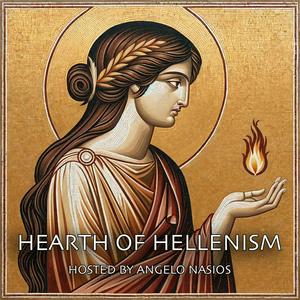
Get the free radio.net app
- Stations and podcasts to bookmark
- Stream via Wi-Fi or Bluetooth
- Supports Carplay & Android Auto
- Many other app features
Get the free radio.net app
- Stations and podcasts to bookmark
- Stream via Wi-Fi or Bluetooth
- Supports Carplay & Android Auto
- Many other app features


Hearth of Hellenism
Scan code,
download the app,
start listening.
download the app,
start listening.


